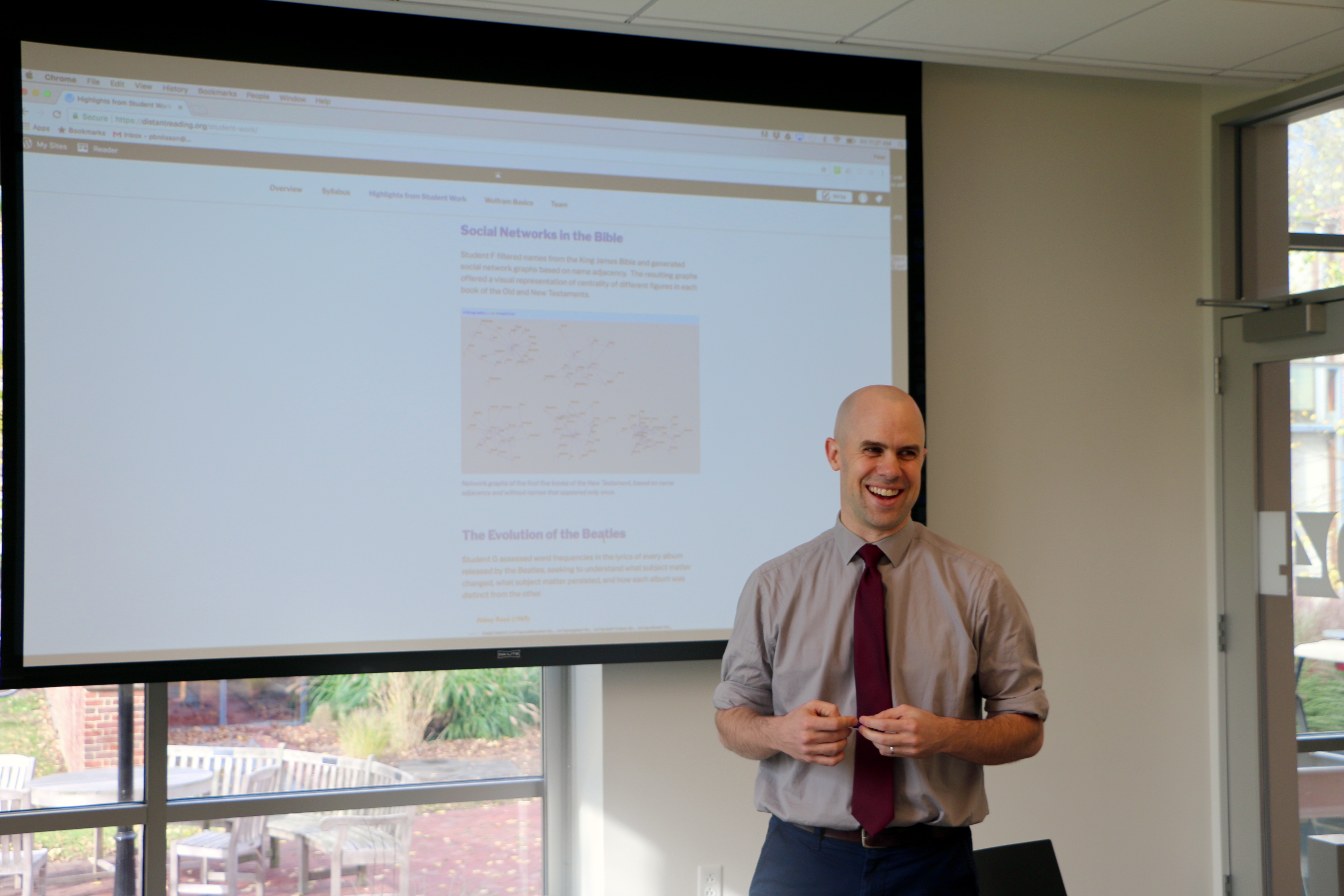Recently, Director of Research, Innovation & Outreach Mr. Peter Nilsson was recognized with a Wolfram Innovator Award for a course he pioneered last spring, dubbed “Distant Reading.” In the course, students performed computational analyses of texts in order to deepen skills in question formulation, problem decomposition, and argumentation.
Mr. Nilsson first conceived the idea for the course at a conference over spring break when he saw a presentation about Wolfram Language. Wolfram Language is a high-level programming language that powers tools like Wolfram Mathematica, a prominent computational software used in college math and physics classes, and Wolfram Alpha, a computational knowledge engine that underlies Apple’s intelligent voice assistant, Siri. “It’s pretty accessible to students who have never done programming before,” Mr. Nilsson explained.

At the conference, Mr. Nilsson realized that analytical tools like Wolfram Language have reached the point where students can utilize them to deconstruct and analyze texts without needing much programming experience. He brought the idea back to Deerfield and discussed it with fellow faculty. Ultimately, he taught one section of the course with Computer Science Teaching Fellow Khizar Hussain, while English Teaching Fellow Anna Gonzales and Computer Science Teacher Ben Bakker taught another section. “The [Wolfram Innovator] award should be shared with Mr. Bakker, Ms. Gonzales, and Mr. Hussein,” Mr. Nilsson stated. “I might have been the person that brought the idea to campus, but all four of us worked together … It was a lot of collaborative work.”
The class’ ideas are based off of digital humanities, an innovative new field that has emerged in the last 15-20 years. Digital humanities revolves around the application of computing technologies to the disciplines of the humanities. “It had previously been high level work because it took a pretty strong background in computer science to run the kinds of analyses on texts. But logically, it’s not particularly complicated. It’s just thinking about words through counting, through networks, through mapping,” Mr. Nilsson specified.
In class, students spend most of their time working on different projects with the guidance of their teachers. For the first project, students analyzed the text of Shakespeare’s Hamlet and compared it to their own writing throughout high school. Among the factors considered were sentence length, complexity of vocabulary, paragraph length, and sentence structure. The creativity continued as the term progressed, as students explored topics such as social networks in the Bible or rhyming in rap lyrics.
“It was interesting to design this class where we did look at works of literature, but in terms of a project-based class like computer science,” Mr. Nilsson described. “But occasionally we did come back together to present and discuss our works in a discussion-style format.”
Each section of the class was taught by one computer science teacher and one English teacher. “They are really complementary skills for us as teachers. The English teachers will have more experience interrogating texts. The computer science teachers will have more experience introducing students to a foreign language and shepherding them through a project in that format,” Mr. Nilsson stated.
Mr. Nilsson is planning to teach the course again this spring. “We learned a lot last year,” Nilsson noted. “We have already made revisions and will be revising further to make it an even better experience for students.”

